- Home
- Conn Iggulden
Stormbird wotr-1 Page 12
Stormbird wotr-1 Read online
Page 12
Thomas looked at his son, seeing how much a man he’d become in the last year. He smiled despite his irritation, feeling pride enough to banish the black clouds overhead.
‘Right, you do that. If you see anyone else on horseback, run like the devil is after you, all right? If the baron’s men come looking for their lost mates, I don’t want you caught. Is that clear?’
‘’Course it is.’ Rowan still looked a little pale after what he had witnessed, but he was determined not to wilt in front of his father. He watched while Thomas gathered the leather wrap for his bow and loped off along the road to the town.
The rain fell harder, battering down as Rowan stood there on the exposed hill. The droplets seemed to roar across the open land and he looked around unhappily, realizing he was alone with half a dozen dead men. He began to gather in the horses, trying not to look at the pale, staring faces slowly sinking into the bracken as it bent under their weight.
The hall smelled of damp wool, the air thick with it. In more normal times, it was the trading place for dozens of landowners. There, they brought sacks of oily fleeces to be judged and teased apart by experts from London and Paris before prices were set each shearing season. The bleating sheep were God’s gift to farmers, the wool they produced as valuable as meat, and there was even cheese from ewe’s milk, though that last was only popular in parts of the French south. The last flurry of orders had been completed a month before, at the beginning of summer. Perhaps because they had gold in their pockets, the men who had come were in bullish mood, their anger and dismay clear. In the twilight, they had dragged wooden benches into place that usually had their purpose making enclosures for the sales. The discussion was already loud when Thomas entered quietly at the back, a fresh shirt feeling stiff and itchy over the day’s sweat.
He knew every man there, though some better than others. The one who called himself Baron Strange was addressing the rest as Thomas murmured a greeting to a neighbour and accepted a seat near the front. He felt the baron’s gaze on him as he settled himself, but Thomas merely sat and listened for a time, gauging the temper of the room. He could feel fresh sweat starting on his skin at the growing heat in the wool hall. There were as many bodies packed in there as on a market day and he shifted uncomfortably. He hated the press of men and always had. It was one of the joys of his life that he could walk free and alone in the hills of his own land.
‘If anyone has better information, let them come forward with it,’ the baron was saying.
Thomas raised his head, feeling the man’s gaze leave him. Baron Strange had oiled his hair again, he noted, making a black slick of shining curls to frame a face weathered by sun and wind. The baron looked the part, at least, whether his claim to nobility was real or not. Thomas could see the hump of muscle on the man’s neck and right shoulder shift as he gestured, the legacy of decades wielding a heavy sword. Baron Strange was not weak of body and his arrogance was clear enough. Even so, Thomas had always sensed the man was a cracked bell, ringing a note that felt false. If they lived through the crisis, he vowed to pay for a search of the archives in London. He’d heard there was talk of founding a college of arms there, with all the family records brought to one place from around the entire country. It would be costly, but Thomas wanted to know if Strange was bluffing better men or really had a claim to his title. It gave Strange influence in their gathering of expatriates and explained why the baron stood to address the group, and why they listened to him.
‘In normal times,’ Strange went on, ‘I employ a few men to pass information to me in exchange for a little coin. They’ve all fallen silent in Anjou. The last I heard was that the French king himself was riding through the Loire valley. We’ve all seen the evicted families come through Maine! Now these black-coat English clerks are in every town hereabouts, telling us to pack up and move. I tell you, we’ve been bought and sold by our own lords.’
A ripple of unrest went around the hall and the baron held up his palms to quell it.
‘I do not suggest King Henry has knowledge of this. There are men high in his court who could broker a deal, who could arrange treason without the king’s knowledge.’ The noise grew to a clamour and the baron raised his voice over them. ‘Well, what else would you call it but treason, when English landowners have their property stolen out from under them? I bought the rights to my holding in good faith, gentlemen. I pay my tithe to the king’s men each year. Half of you here were soldiers with the good sense to use your bounties to buy land and sheep. Our land, gentlemen! Will you meekly hand your deeds to some poxed French soldier? Land and property you have sweated and bled for a hundred times over?’
A roar of anger was the response and Thomas looked thoughtfully around him. Strange knew the right strings to pull, but the truth was a little more complex. It was King Henry who truly owned the land, from the smallest hamlet in England and Wales, to half of France. His earls and barons administered vast reaches, collecting tithes and taxes in return for providing the king with soldiers. The truth might sit like a stone in the throats of all the men there, but when the bluster was stripped away, they were all tenants of the king.
Thomas rubbed the bridge of his nose, feeling weary. He played no part in the politics of Maine, preferring to spend his time on his holding and returning to town only for the markets and supplies. He’d heard about the clerks infesting every market town with their warnings and threats of eviction. Like the others, Thomas felt a slow-burning anger at lords who had apparently betrayed him while he worked for his family. He’d heard the rumours from Anjou weeks before, but it seemed they’d all been confirmed.
‘They could be here by Christmas, gentlemen,’ Baron Strange said as the noise began to ease. ‘If it’s true that the price of this truce was Anjou and Maine, we’ll be joining the evicted families on the road by the end of the year.’ He cracked his knuckles viciously, as if he wished for a throat to hold and crush between his hands. ‘Either we walk away from everything we have built here, or we defend it. I will tell you all, in this place, I will defend my land. I have …’
He had to stop as a bellow of agreement came from the farmers and landowners on the benches.
‘I have sixty-eight family men working my fields: old soldiers who will stand with me. I can add another two dozen horsemen and I have the coin to send for more from English Normandy. If you pool your gold with mine, it may be we can hire men-at-arms to come south and stand with us.’
That idea brought a hush to the crowd, as they considered giving up their hard-earned gold for a cause that might already be lost.
Thomas rose to his feet and Baron Strange frowned at him.
‘You’ll speak, Woodchurch? I thought you held yourself apart from the rest of us?’
‘I have a holding, baron, same as you. It’s my right to speak.’
He wondered how the baron would react when he discovered he had six fewer men-at-arms than he thought. Not for the first time, Thomas regretted his action earlier that day.
With ill grace, Strange gestured stiffly and Thomas stepped forward and turned to face them. For all his love of solitude, he had come to know the English, Welsh and Scots in that hall and more than a few called a greeting or a welcome.
‘Thank you,’ Thomas said. ‘Now then. I’ve heard more rumours in the last week than in the year before it and I need to know the solid truth of them. If the French are pushing north this year, where is our army to smack their heads and send them home? This talk of a truce is just wind. Why isn’t York here, or Somerset, or Suffolk? We have three high-ranking nobles in France who can send men into a battle line and I don’t see hide nor hair of any of them. Have we sent messengers into Normandy? Anyone?’
‘I have,’ Strange replied for them. His mouth twisted in irritation at the memory. ‘I’ve heard nothing from the Duke of York, no word at all. They’ve abandoned us to fend for ourselves.’
He would have gone on, but Thomas spoke again, his deep, slow voice rolling over the group. H
e’d already made his decision. It galled him to support the baron, but there was no choice, not for him. Everything he had was in his land. If he abandoned his holding, he and his family would be reduced to begging on the streets of Portsmouth or London.
‘I’ll send my girls back to England, while we take a measure of the trouble to come. I suggest you all do the same, if you have family there still. Even if you don’t, you have funds enough to put them up in inns, in Normandy or England. We can’t stay clear-headed with women to protect.’
‘You’ll join me then?’ Baron Strange asked. ‘You’ll put aside our differences and stand with me?’
‘Jesus, baron, I was going to ask you to stand with me,’ Thomas replied, a smile quirking the corners of his mouth. The men in the room laughed and the baron flushed. ‘Either way, I won’t give up my farm, I’ll tell you that much. I’ll add my gold to yours to hire soldiers, but we’ll need a veteran officer or two as well. Better still would be to get a battle-seasoned lord to lend his name to our little rebellion.’
The word stole away some of the humour in the room. Thomas looked around at them all, seeing solid farmers with rough, red hands from work.
‘That’s all it will be, if the French army comes hammering on our doors. Oh, I’ve seen Englishmen rout larger French forces. I’ve seen the backs of a few French soldiers running away from me in my time.’ He paused for a ripple of laughter to die down. ‘But we can’t hold the land with what we have. All we can do is make them pay a price for it.’
‘What?’ Baron Strange demanded incredulously. ‘You’d talk defeat before the fighting’s even begun?’
‘I talk as I see it,’ Thomas said with a shrug. ‘It doesn’t make any difference to me. I’ll still stand and send my arrows into them when they come. I’ll fight, even if I’m on my own. I don’t have any choices left but one, not the way I see it. But you know, I was an archer before I was a farmer — and an English archer at that. We don’t run just because the odds are against us.’ He paused in thought. ‘It might be that if we hold them, if we knock them back, the English lords will have to support us. I know one man who’ll tell me straight if we have a chance, if there’ll be help from the north. He has the ear of the king himself and he’ll tell us what we need to know.’
‘Who is it?’ Strange asked. He was accustomed to being the one with connections, or at least the claim of them. To hear Thomas Woodchurch talk of friends in high places was strangely unsettling to him.
‘You won’t know the name, baron, and he wouldn’t like me to use it. He and I fought side by side years ago. He’ll tell me true, for the debt he owes me.’
‘Keep your secrets then, Woodchurch. You’ll bring me news if you hear from him?’
‘I will. Give me a month at most. If I can’t reach him by then, it’s because he doesn’t want to be reached and we’re on our own.’
Baron Strange chewed at his lower lip while he listened. He didn’t like Thomas Woodchurch, not even a little. There was something in the way the man smiled whenever he heard his title that irked the baron like a cold key down his back. Yet he knew the man’s word was good.
‘I’ll send letters to those I know as well,’ the baron replied. ‘Any of you with friends in the army should do the same. We’ll come back here one month from today and we’ll know by then where we stand.’
Thomas felt a hand clap him on the shoulder and he looked round into the face of old Bernard, one of the few men there that he’d have called a friend.
‘Will you join us in a drop, lad? I’m awful dry after all the talking and it weren’t even me doing it.’
Thomas smiled wryly. He liked the old archer, though there was a good chance a few pints of ale would mean sitting through the Agincourt story once again. Thomas would have preferred to walk the eight miles to his home, but he paused before refusing. Most of the men would be wetting their throats before heading out. Thomas knew he might be asking them to fight for him before the end of the year or the following spring. It wouldn’t hurt to hear what they had to say.
‘I’ll come, Bern,’ he said.
The old man’s pleasure at his response went some way to ease the darkness plaguing Thomas’s spirits.
‘I should hope so, lad. You need to let them see you now. These boys need a leader and that Strange is not the man for it, not as I see it. A title don’t give him the right, though there’s some as think it does. No, lad. They need an archer, with a sense of the land. Share a pint or three with me and I’ll tell thee what I have in mind.’
Thomas let himself be carried along in the group heading to the inn. He sent a silent prayer that Derry Brewer could be found quickly — and that he would answer an old friend.
10
In the howling darkness Derry Brewer sat and waited, needing to know if it was a trap. He was convinced only an owl could have seen him move by then, but he still resisted the urge to wipe rain from his eyes. Though his sight blurred, he remained perfectly still, just blinking slowly as the heavens opened and drenched him. He wore a dark cloak of waxed linen, but he’d discovered it leaked and the rivulets running inside were freezing. He’d been in that spot for hours, with his back and knees growing slowly more painful.
There had been a little moonlight before the storm clouds boiled angrily above his head and the first fat drops pattered on the leaves. He’d seen that the land around the farmhouse had been cleared and laid out by a careful hand. The house looked normal enough at first glance, but the bushes and lane were planted so there was just one clear path to the door — a path a pair of archers could cover against an army. Derry smiled to himself, remembering different times, different places. He had spotted the pile of lumber left out in the open. It was in just the right place to use it as a barricade and then fall back to the main house. Thomas Woodchurch was a careful man, just as Derry was. Being careful and taking time had saved both their lives more than once.
The rain was easing, but the wind still moaned through the trees, filling the air with leaves that spun and danced like wet coins. Still he waited, reduced to a bright point of awareness in a shivering body. In the cottage, he noted which rooms showed moving shadows and tried to guess how many people he might expect inside.
Without warning, a sudden sense of illness touched him, making his stomach clench and his testicles creep. He’d heard nothing, seen nothing, but in the darkness Derry realized he’d taken the only spot that gave him a good view of the front door and the main rooms of the cottage. His heart began to race in his chest and he wondered if he could run after so long in a crouch. He cursed himself in silence, thinking as fast as he ever had. He edged his hand to the heavy seax knife at his waist, the hilt slick under his grasping fingers. In the wind and rain, he knew no one could hear him taking a long, slow breath. His pride made him pitch his voice at a normal tone, trusting his instincts.
‘How long will you wait out here with me?’ Derry said loudly.
He was certain he’d guessed right, but he still almost jumped out of his skin when someone laughed softly behind him. Derry tensed to move, either to run or throw himself in that direction.
‘I’ve been wondering the same thing, Derry,’ Thomas said. ‘It’s damned cold and there’s food and ale in the house. If you’ve finished playing your games now, why don’t you come in?’
Derry swore to himself.
‘There’s a few men in France who’d love to know where I am tonight,’ he said. He stood, his knees and hips protesting. ‘I had to know you hadn’t joined them.’
‘If I had, you’d be eating an arrow by now,’ Thomas said. ‘I had to know you were alone, for the same reasons. I have a few enemies myself, Derry.’
‘Good men like us always do,’ Derry replied. Though he knew by then where Thomas was standing, it was still hard to make him out in the darkness.
‘I’m not a good man, Brewer. And I know you’re not. Peace, old son. Come down and break bread with me. I’ll tell you what I’m after.’
&nbs
p; Thomas crunched through the dead leaves and clapped Derry on the shoulder walking past him towards the house.
‘How did you know I was there?’ Thomas called over his shoulder.
‘I remembered how you liked to hunt,’ Derry said, following him. ‘How did you get so close without me hearing you?’
He heard his old friend chuckle in the gloom.
‘As you say, I’m a hunter, Derry. Stags or men, it’s all the same.’
‘No, truly. How did you do it?’
The two men walked together across the open yard, passing the stack of lumber as they approached the house.
‘I used the wind for cover, but there’s a bit more to it than that. If you have twenty years, I’ll teach you.’
As they reached the door, the light from the lamplit windows let Derry see his friend’s face for the first time. He watched as Thomas gave a low whistle out into the dark yard.
‘Someone else?’ Derry asked.
‘My son, Rowan,’ Thomas replied, smiling as he saw the irritation in Derry’s face. ‘This is my land, Derry — and his. You can’t creep up on me here and not have me know it.’
‘You mustn’t sleep much then,’ Derry muttered.
As he spoke, a tall young man appeared out of the wind and rain, wearing a cloak similar to Derry’s own. Without a word, Rowan took his father’s bow and quiver. The weapons were better wrapped and protected than the men who owned them.
‘Rub them down well with oil and check the shafts for warp,’ Thomas called as his son turned and walked away. He got a grunt in return, which made him smile.
‘You’re looking well,’ Derry said, meaning it. ‘Being a farmer has put a little meat on your bones.’
‘I’m well enough. Now come in out of the rain. I have a proposition for you.’
The farmhouse kitchen was blessedly warm, with a small fire burning in the grate. Derry removed his waxed cloak before it made a puddle on the stone floor, dipping his head respectfully to the stern-looking woman sitting at the table. She ignored him as she took a cloth and removed a black iron kettle from where it hung over the flames.

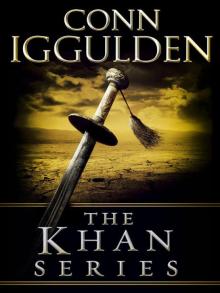 The Khan Series 5-Book Bundle
The Khan Series 5-Book Bundle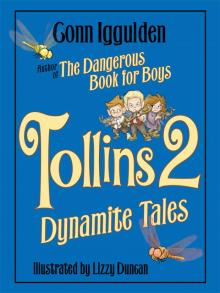 Tollins 2: Dynamite Tales
Tollins 2: Dynamite Tales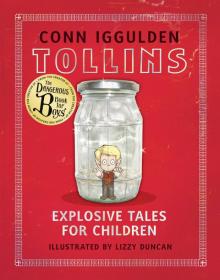 Tollins: Explosive Tales for Children
Tollins: Explosive Tales for Children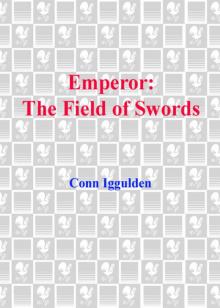 The Field of Swords
The Field of Swords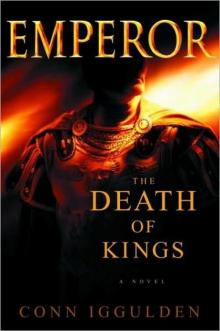 The Death of Kings
The Death of Kings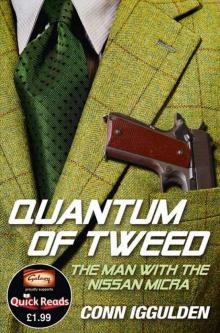 Quantum of Tweed: The Man With the Nissan Micra
Quantum of Tweed: The Man With the Nissan Micra Bones of the Hills
Bones of the Hills Genghis: Birth of an Empire
Genghis: Birth of an Empire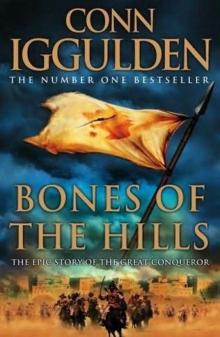 The Gates of Rome
The Gates of Rome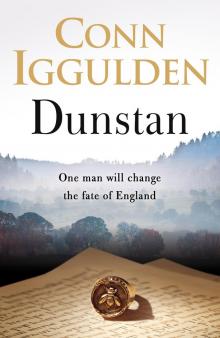 Dunstan
Dunstan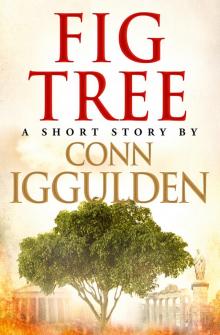 Fig Tree
Fig Tree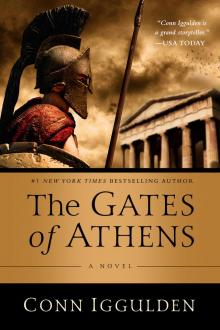 The Gates of Athens
The Gates of Athens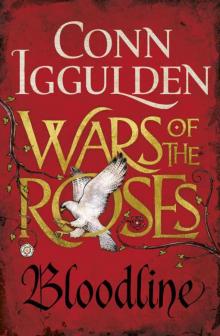 Stormbird
Stormbird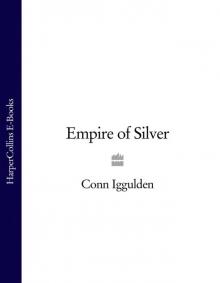 Khan: Empire of Silver
Khan: Empire of Silver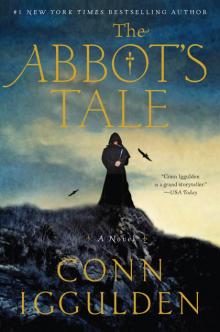 The Abbot's Tale
The Abbot's Tale Gengis: Lords of the Bow
Gengis: Lords of the Bow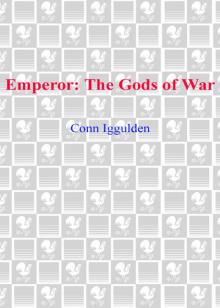 The Gods of War
The Gods of War Blackwater
Blackwater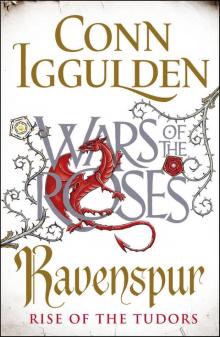 Ravenspur: Rise of the Tudors
Ravenspur: Rise of the Tudors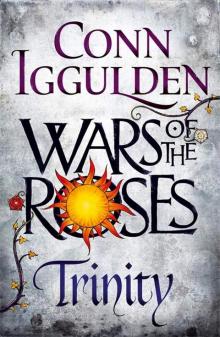 Wars of the Roses: Trinity (War of the Roses Book 2)
Wars of the Roses: Trinity (War of the Roses Book 2) The Gods of war e-4
The Gods of war e-4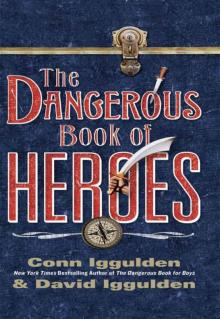 The Dangerous Book of Heroes
The Dangerous Book of Heroes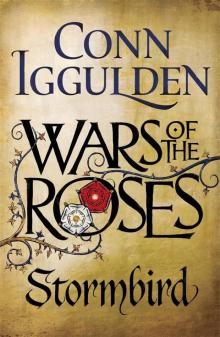 Stormbird wotr-1
Stormbird wotr-1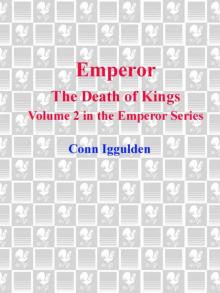 Emperor: The Death of Kings
Emperor: The Death of Kings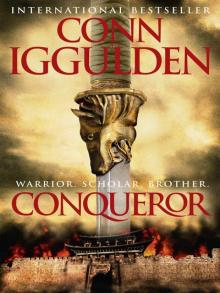 Conqueror (2011) c-5
Conqueror (2011) c-5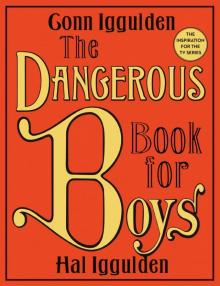 The Dangerous Book for Boys
The Dangerous Book for Boys Genghis Lords of the Bow
Genghis Lords of the Bow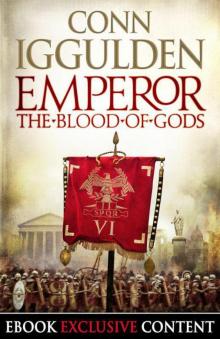 Emperor: The Blood of Gods (Special Edition) (Emperor Series, Book 5)
Emperor: The Blood of Gods (Special Edition) (Emperor Series, Book 5)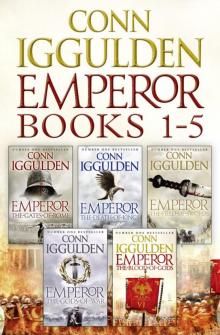 The Emperor Series: Books 1-5
The Emperor Series: Books 1-5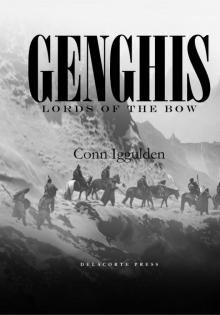 Lords of the Bow c-2
Lords of the Bow c-2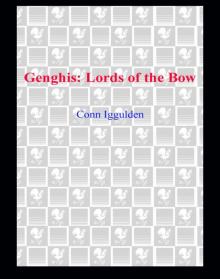 Lords of the Bow
Lords of the Bow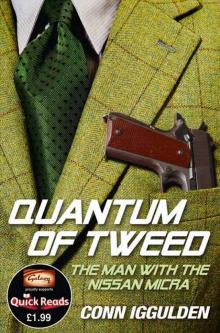 Quantum of Tweed
Quantum of Tweed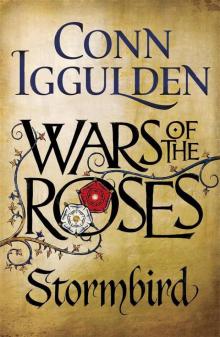 Wars of the Roses 01 - Stormbird
Wars of the Roses 01 - Stormbird Empire of Silver c-4
Empire of Silver c-4 Birth of an Empire
Birth of an Empire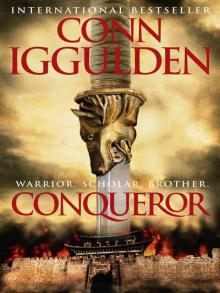 Conqueror (2011)
Conqueror (2011)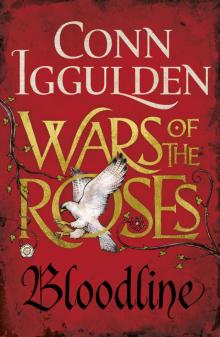 Wars of the Roses: Bloodline: Book 3 (The Wars of the Roses)
Wars of the Roses: Bloodline: Book 3 (The Wars of the Roses) Bones Of the Hills c-3
Bones Of the Hills c-3 Empire of Silver
Empire of Silver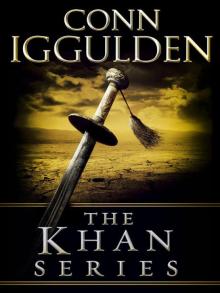 The Khan Series 5-Book Bundle: Genghis: Birth of an Empire, Genghis: Bones of the Hills, Genghis: Lords of the Bow, Khan: Empire of Silver, Conqueror
The Khan Series 5-Book Bundle: Genghis: Birth of an Empire, Genghis: Bones of the Hills, Genghis: Lords of the Bow, Khan: Empire of Silver, Conqueror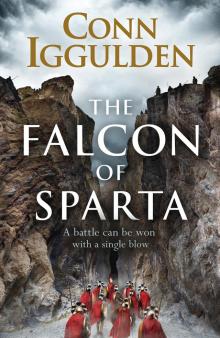 The Falcon of Sparta
The Falcon of Sparta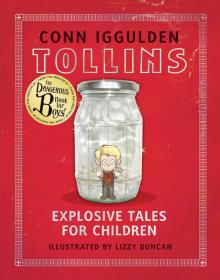 Explosive Tales for Children
Explosive Tales for Children